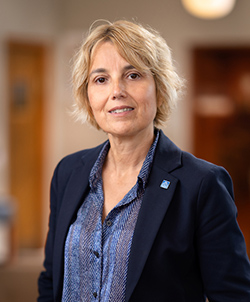Academic mobility is a hot topic right now. Scholars often move in search of better conditions for conducting serious, meaningful work. Today, perhaps more than ever, talent retention and attraction are crucial issues. Countries are responding in various ways: some invest heavily to attract talent, while others focus on visibility and scale. What I believe is sometimes overlooked is the immense value of environments where research is still treated as something worth protecting.
For me, that place was Sweden.
I first came to Sweden as a postdoc at the Mittag-Leffler Institute, one of the world’s most respected research centers in mathematics, a place where ideas breathe and fundamental, long-term research isn’t just allowed, it’s expected. From there, I spent a year in Germany and a couple of years in the U.S. Then I returned to Sweden as faculty at KTH.
Not because of the salary—that’s not Sweden’s selling point. But what I found here was something that, to me, mattered more: a research culture with room to grow, a school system I (mostly) trust, and a social structure that makes academic life compatible with family life.
At KTH, I found something else, too: a truly international academic environment. Many of my colleagues come from outside Sweden. Diversity isn’t just a statistic—it shapes how we work, teach, and think. Even as someone who didn’t grow up in this system, I’ve been able to find my place—and eventually became dean of the school. That says something about how open the environment can be.
For those of us already at KTH, this is a reminder that what we create together, through mentorship, collegiality, and the way we conduct research and education, matters deeply. A welcoming and intellectually rich environment doesn’t happen automatically. It’s something we build, choice by choice, and it is one of our greatest assets in a global academic landscape.
And beyond the institution, Sweden’s approach to research is, so far, serious and steady. This is the country of the Nobel Prize, yes—but also of long-term investment in science. Programs like those from the Swedish Research Council (Vetenskapsrådet) or the Wallenberg foundations offer stable, long-term research support, aiming also to attract talent from other countries.
So, is it perfect? Of course not. But maybe that’s not the point. For me, the real question was: what kind of academic life do we want to build?
Sweden might not be on everyone’s radar. But maybe it should be.


No comments yet. Be the first to comment!